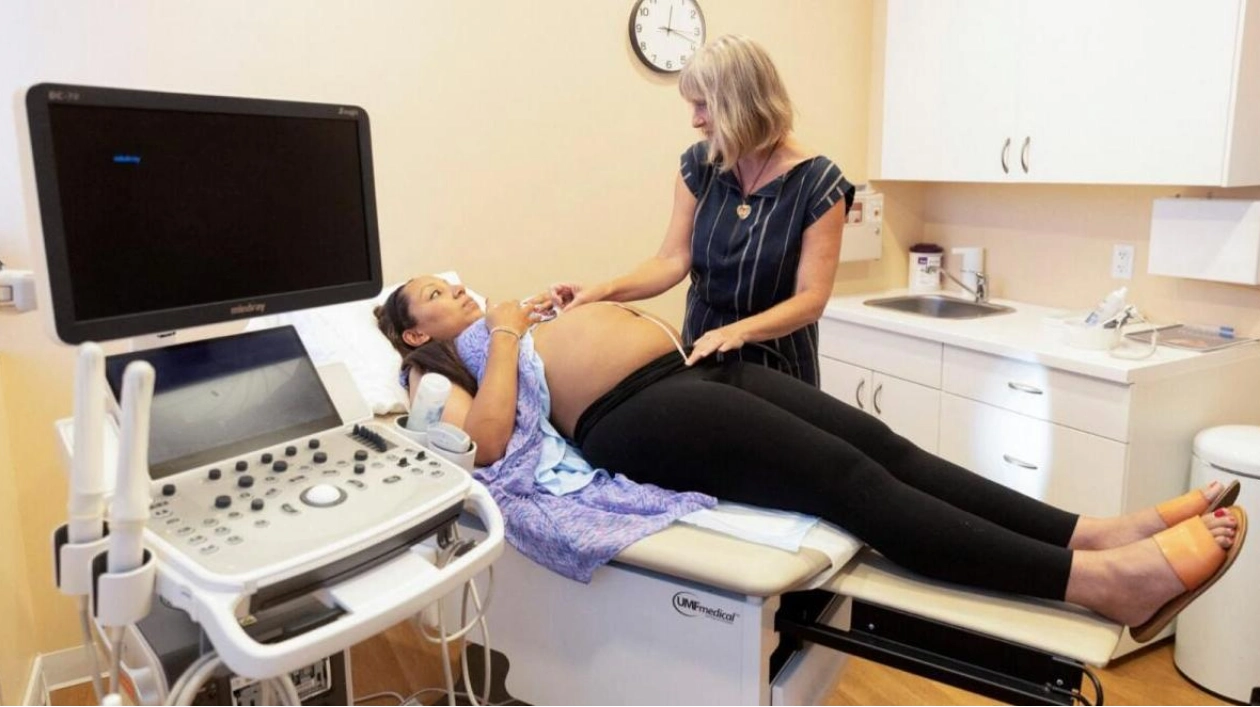Having served as a doula for a decade, Kortny Feutardo began her first Maryland Medicaid case in January, offering care coordination and counseling to a new mother. Feutardo is among numerous providers who are reaping the benefits of increased investment in maternal and neonatal health. After experiencing delayed payments from her patient’s managed care organization, she started collaborating with Mae, a venture-backed firm that connects pregnant women with doulas through Medicaid collaborations and manages payments. Amid a U.S. maternal mortality crisis, government health plans for low-income Americans have expanded coverage of services proven to enhance maternal and infant health in recent years. Now, venture capital firms like Khosla Ventures and Rock Health are ramping up investments in maternal health companies and technologies, anticipating sector growth and expecting accelerated payment rates from both Medicaid and commercial insurance.
Investments in early maternal healthcare ventures, including companies like Mae and others from clinics to fertility and nutrition specialists, reached $306.5 million in 2023, a 700 percent surge from $38.1 million in 2018, according to Pitchbook data for Reuters. Midwife and doula-led births typically offer perinatal care coordination, post-partum and pre-natal counseling, lactation support, behavioral health screenings, and assistance for mothers quitting smoking. Midwives, certified clinical providers, deliver obstetric and gynecological care, while doulas, without clinical roles, offer educational and emotional support. The expansion of insurance coverage and integration of doulas and midwives in healthcare plans, coupled with promising financial prospects, is attracting more investment. Alice Zheng, a partner at RH Capital, noted Amazon’s recent acquisition of One Medical as indicative of potential in maternal health clinics.
“There have been some significant exits in clinical care recently,” Zheng remarked, referencing her firm’s investment in Millie Clinic. Millie, based in Berkeley, California, secured $4 million in its initial funding round in 2022, led by BBG Ventures and TMV. At Khosla Ventures, investors focus on maternal health technologies, viewing them as advantageous over clinical care companies. The firm, managing $17 billion in assets, has invested in Mirvie and Vitara, which use RNA testing and preterm infant incubators respectively to prevent pregnancy complications. “Saving the lives of mothers and babies is in everyone’s interest, so for breakthrough innovations like Mirvie and Vitara, there is ample opportunity for reimbursement,” explained Alex Morgan, a partner at Khosla Ventures. U.S. maternal mortality rates are the highest among high-income nations, and for Black women, they are over twice as high, according to a 2024 Commonwealth Fund report. Midwife-led care has demonstrated improvements in health outcomes for Black women and their infants.
A U.S. government analysis of birth center outcomes from 2013 to 2017 revealed that Black women giving birth in midwife-led centers had reduced rates of pre-term and low-weight births. In 2020, Rock Health Capital invested in Oula, which operates two maternity centers in New York offering both midwifery-led care and obstetrics. Oula secured $28 million in its second funding round in February and plans to open a third Manhattan clinic by September. Bill Evans, founder of Rock Health Capital, cited Oula’s health outcomes as his investment motivation. Compared to New York City’s natality data from the National Center for Health Statistics, Oula reported a 61 percent lower preterm birth rate across 1,500 births since 2021. Millie’s cohort of 150 births saw a 71.3 percent lower preterm birth rate than the national average, and for Black mothers, the rate was 60.2 percent lower.
Medicaid coverage for doula services is not federally mandated but is optional for states, according to Amy Chen at the National Health Law Program. In 2022, Medicaid covered 41 percent of U.S. births, as reported by the Centers for Disease Control and Prevention. A Centers for Medicare and Medicaid Services spokesperson encourages state coverage. Currently, 15 states and Washington D.C. reimburse doulas, with three states adding this to Medicaid this year. Commercial insurance mandates lag, with only Rhode Island requiring coverage. The three largest U.S. managed care companies, Cigna, CVS’s Aetna, and UnitedHealth, leave the decision to cover doulas to health plan sponsors. As doula and midwifery companies expand nationally, they face challenges with reimbursement.
“We must address inadequate reimbursement rates, viable health system partners, and the availability of clinical talent in those markets,” stated Anu Sharma, CEO of Millie. The reimbursement environment necessitates venture funding for growth. Venture funding is crucial for sustaining innovation as Medicaid-focused businesses navigate reimbursement constraints, according to Maya Hardigan, founder and CEO of Mae. Even in New York, which offers the highest reimbursement rate for midwives—95 percent of an obstetrician’s fee and up to $1,440—payments are insufficient, according to companies. Doula Feutardo has been pleased to serve a more diverse group through Medicaid, but reimbursement remains a concern. She has adjusted her private fees to align with her Maryland Medicaid rate of $1,300 per delivery, emphasizing equal care for all mothers.






